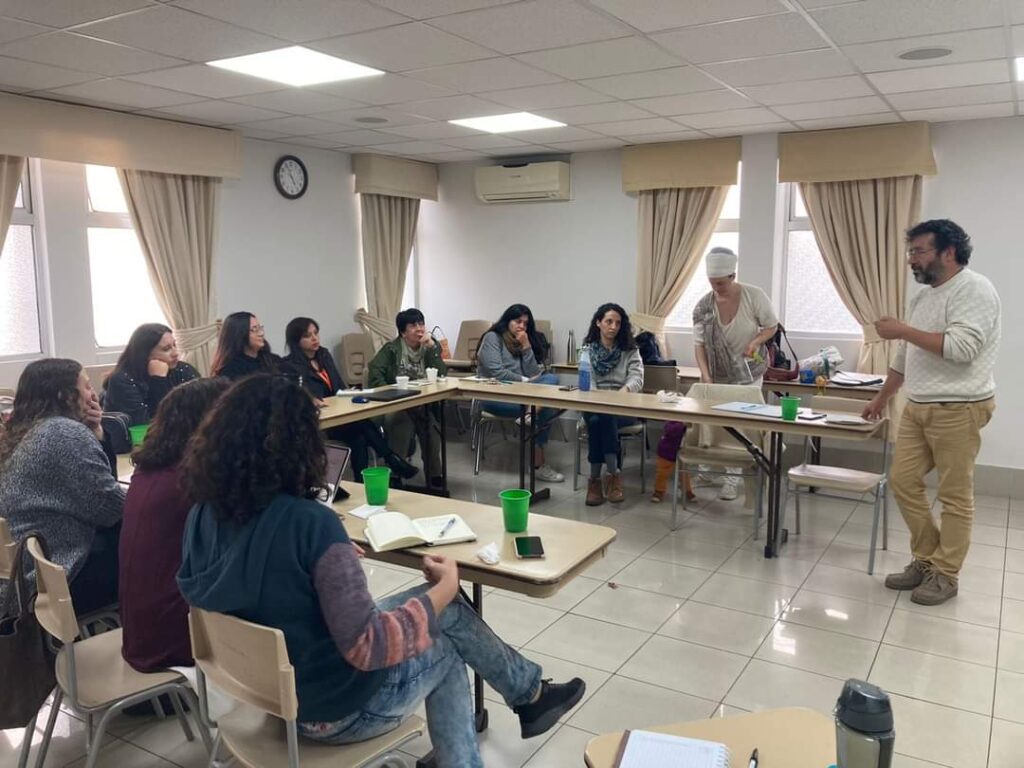Engaging Children in Decision Making

Adultcentrism is the tendency of adults to view children and their problems from a biased, adult perspective, thus creating barriers to effective practice with children.
How do we change structural patterns of adultcentrism in our work with children and adolescents?
To answer this question, and develop an interreligious, intercultural, and intergenerational project, GNRC Chile sought consultancy with sociologist and professor from the University of Chile, Claudio Duarte. In a two-day workshop, they reflected through a participatory process on how behavior built on structures of unconscious repetition can be overcome, and how age should not be viewed as a factor of power, but rather an element of participation. They concluded that diversity in age allows for meaningful participation where everyone contributes from their experience, interest, and point of view. Meaningful participation of children in activities and processes allows them to feel heard and know that their opinions matter.
Article 12 of the Convention of the Rights of the Child recognizes that children have the right to participate in decision-making on matters that concern and affect them, whether individually or collectively. It allows them to express their opinions and have them considered. Adults are expected to facilitate safe spaces for children for them to grow, create, and implement their interests and needs.
The post Changing Patterns of Adultcentrisim appeared first on Global Network of Religions for Children.